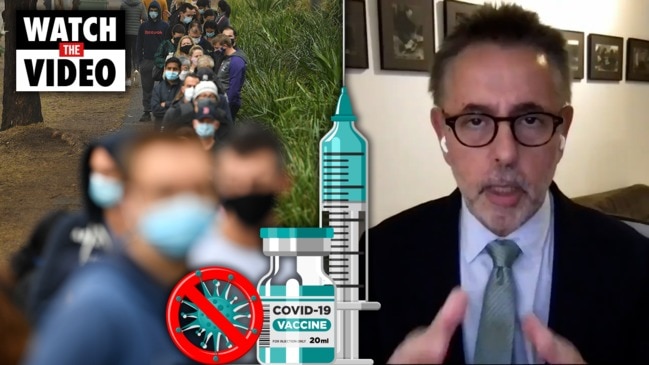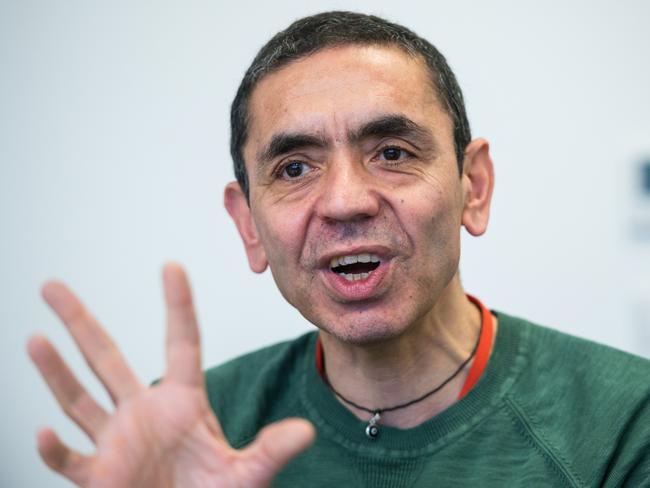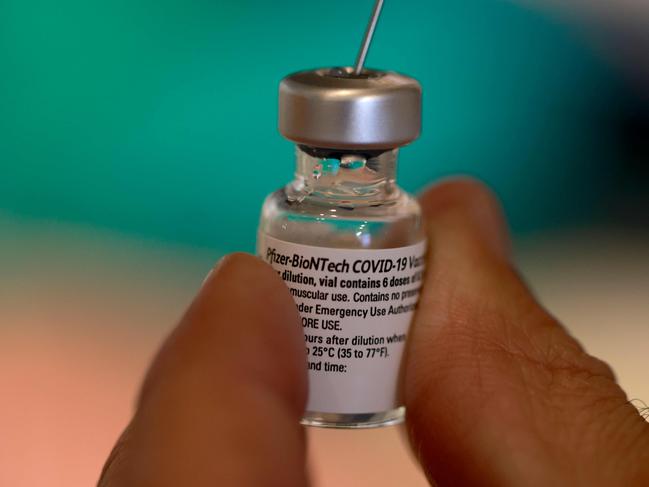Coronavirus world: ‘No need’ to adapt Pfizer jab to Delta variant
Pfizer’s boss reveals whether the vaccine needs to be modified to work against variants, as profits from Covid vaccines are disclosed.

World
Don't miss out on the headlines from World. Followed categories will be added to My News.
The first generation vaccine developed by BioNTech-Pfizer works against coronavirus variants such as the Delta strain and does not need to be modified for the moment, the chief executive of German company BioNTech said on Monday local time.
“It is quite possible that in the next six to 12 months, further variants will emerge and that would require adaptation of the vaccine but it is at the moment not yet the case,” Ugur Sahin told media.
A decision to make a switch should be made only if it is clear that the vaccine failed to work or is only offering sub-par protection against the virus.
The fast-changing situation meant that getting the timing for the change right was also crucial.
“Making a decision at the moment might turn out to be wrong in three or six months if another variant is dominating. Therefore the timing of the decision must be appropriate,” he said.
“At the moment we have a good understanding that the booster vaccine with the parental strain is completely sufficient,” stressed Mr Sahin.

BioNTech’s partner Pfizer has also repeatedly amplified the case for booster shots amid the latest wave of infections.
Countries including France and Germany have said they will begin offering the additional shot to the elderly and the most vulnerable from September.
BioNTech-Pfizer have shipped around one billion doses of their vaccines to more than 100 countries or territories around the world.
They are expecting their annual manufacturing capacity to reach three billion doses by year’s end, before climbing to four billion doses in 2022.
It comes as it emerged that Covid vaccines have brought billions of dollars to the coffers of pharmaceutical companies according to financial reports released on Monday local time.
Germany’s BioNTech, maker with partner Pfizer of the pioneering mRNA jab, raised its vaccine revenue forecast for 2021 in its latest earnings report.
Biggest winners: Pfizer and BioNTech – US firm Pfizer and BioNTech got a headstart over rivals as they were the first in the western world to announce positive results from clinical trials of their vaccine last year.

They were also first to get authorisation from US and European Union regulators to sell their shot.
Pfizer has earned more than its competitors, raking in $US10.8 billion ($A14.6 billion) in the first half of this year.
The US company has raised its outlook for 2021, expecting to make $US33.5 billion ($A45 billion) in sales for the full year.
BioNTech reported revenues of 7.3 billion euros ($A11.6 billion) in the first half. Unlike its larger partner, the company’s only product on sale is the coronavirus vaccine.
BioNTech expects vaccine revenues to reach 15.9 billion euros ($A25.4 billion) for the full year, up from a previous estimate of 9.8 billion euros ($A15.6 billion).
The Moderna vaccine, which is soon to be available in Australia, reported a turnover of $US5.9 billion ($A9.4 billion) in the first six months of the year. It expects to make $US20 billion ($31.9 billion) in revenues thanks to the vaccine this year.
AstraZeneca, who did not provide a full year estimate, generated $US1.2 billion ($A1.6 billion) in sales in the first six months of the year.
The Johnson & Johnson vaccine reported $US264 million ($A358 million) in sales and expects to make $US2.5 billion ($A3.3 billion) for the full year.



